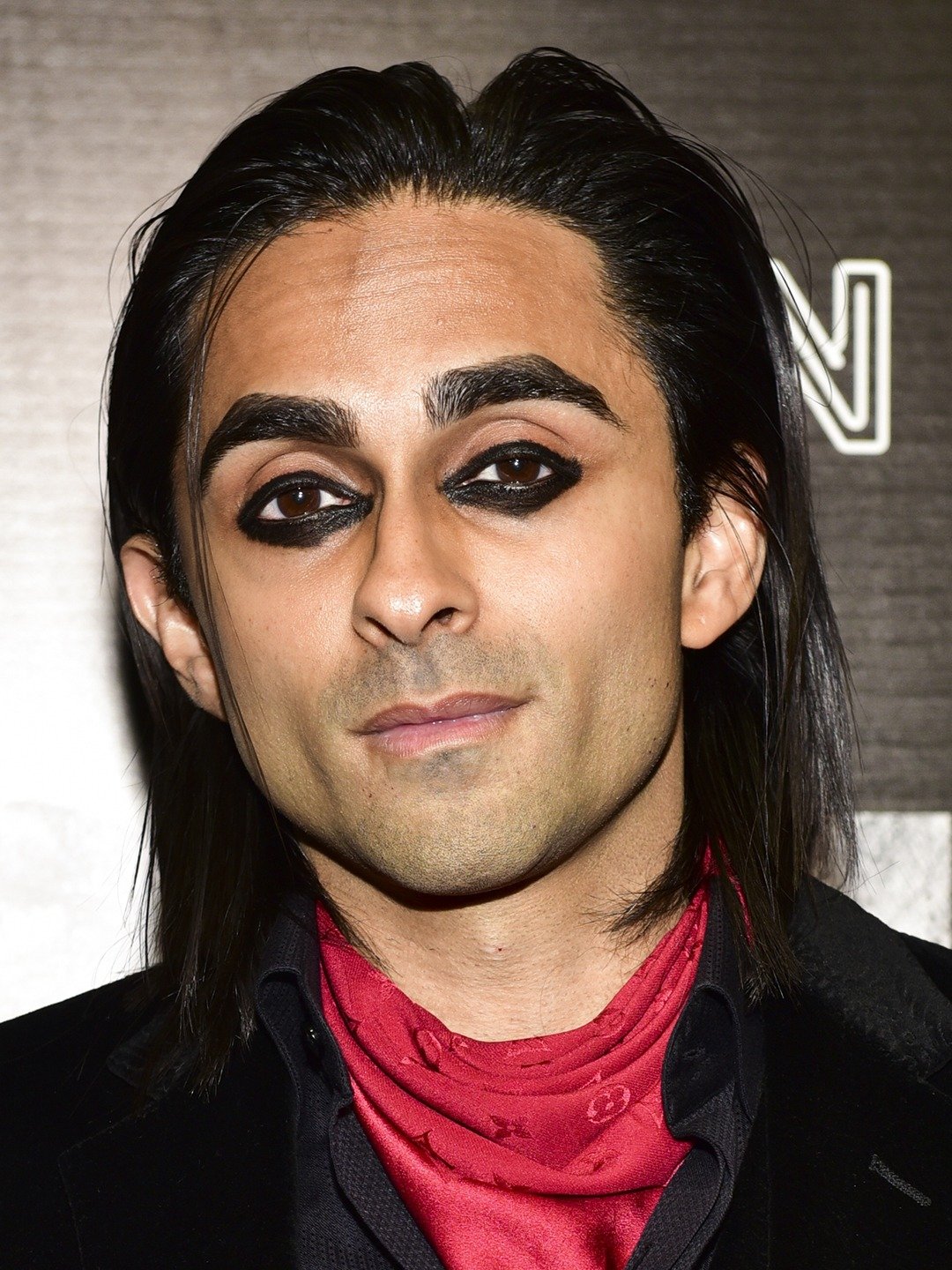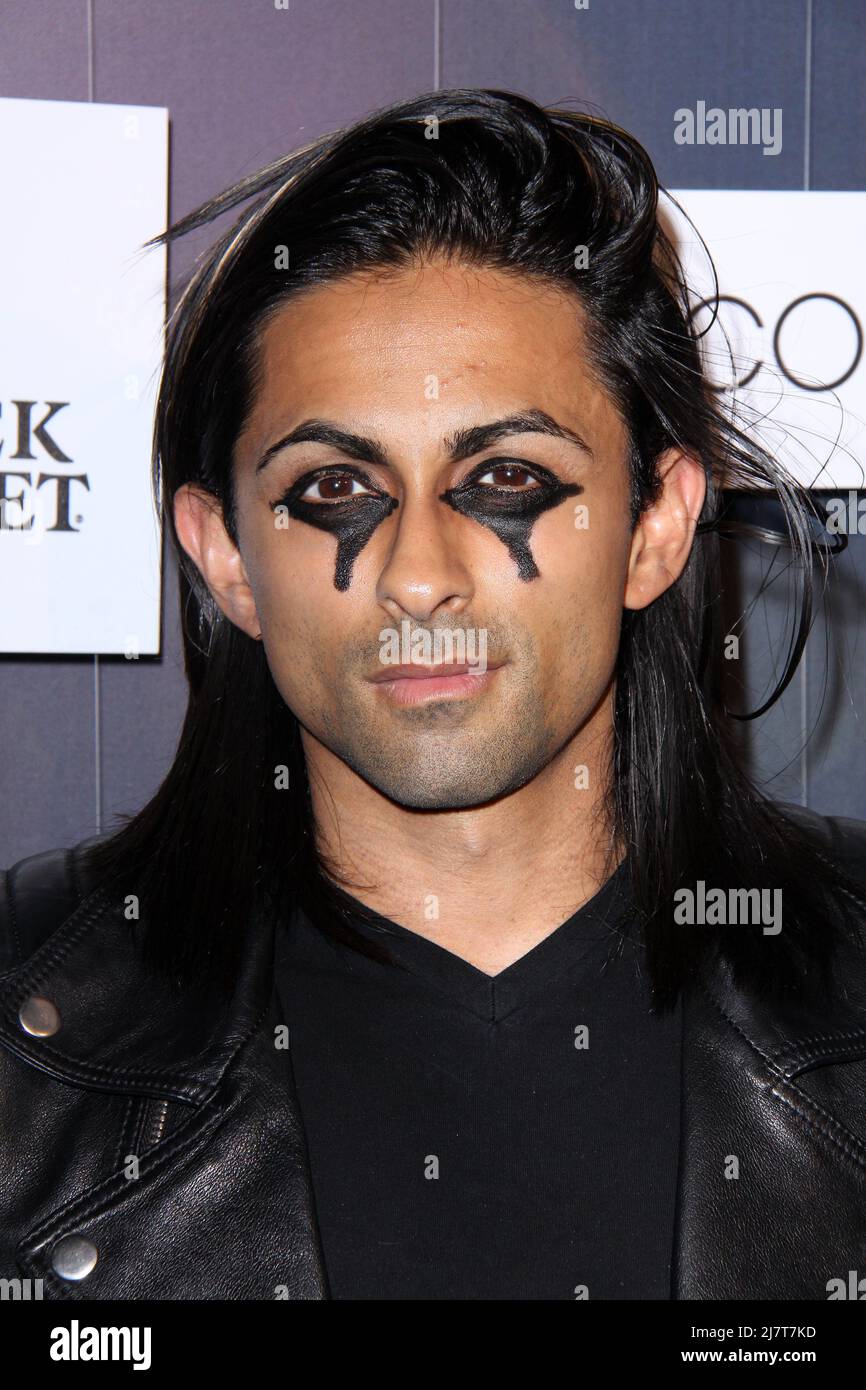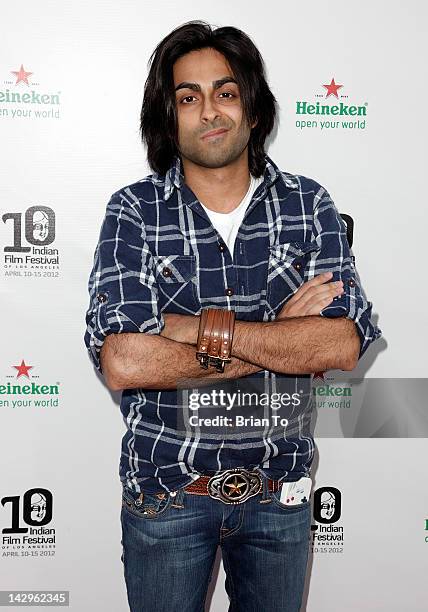Adi Shankar: Revolutionizing Animation & Challenging Norms
Adi Shankar stands as a truly unique and transformative figure in the contemporary entertainment landscape, a multi-hyphenate talent who has carved out a distinctive niche through his audacious vision and unwavering commitment to unconventional storytelling. From his early days cultivating a cult following with his "Bootleg Universe" fan films to spearheading critically acclaimed animated series for Netflix, Shankar has consistently pushed boundaries, redefined expectations, and left an indelible mark on how we consume and perceive popular culture. His journey is a testament to the power of independent spirit meeting mainstream ambition, resulting in a body of work that is as diverse as it is impactful.
Born in India and shaped by a nomadic childhood that spanned continents, Adi Shankar’s unique perspective informs every project he touches. He is not merely a producer or a director; he is a disruptor, an innovator, and a fervent advocate for creative freedom. This article delves into the multifaceted career of Adi Shankar, exploring his origins, his groundbreaking contributions to animation and film, the controversies he has navigated, and his enduring legacy as a visionary who dares to challenge the status quo.
The Journey of Adi Shankar: A Maverick's Biography
The story of Adi Shankar is one of relentless movement and a global upbringing that profoundly shaped his worldview and creative instincts. Born on January 8, 1985, in Kolkata, West Bengal, India, his early life was far from static. His family, with a background in banking, constantly changed homes, "pinballing from Kolkata to Mumbai to Hong Kong," and even Singapore. This nomadic childhood, while perhaps challenging, instilled in Shankar a unique adaptability and a broad cultural understanding that few in the entertainment industry possess. It allowed him to absorb diverse narratives and perspectives, which would later become hallmarks of his storytelling.
- Sandra Ali
- Sandra Bullock Met Gala
- Nicole And Eddie Murphy
- National Lampoon 80s National Lampoon Beverly Dangelo
- Brian And Mika
At the tender age of 15, Adi Shankar made a pivotal decision: he moved to the United States by himself. This bold step, undertaken just two days before what he cryptically refers to as "everything went to hell," speaks volumes about his independent spirit and determination. It was in America that he would eventually solidify his credentials in the mainstream entertainment sphere, though his roots and global experiences continued to inform his work. His journey from a young, self-reliant immigrant to a celebrated producer and director underscores a narrative of resilience and ambition, demonstrating that his unconventional path is as much a part of his identity as the projects he brings to life.
Personal Data and Biodata of Adi Shankar
| Attribute | Detail |
|---|---|
| Full Name | Aditya Shankar (Adi Shankar) |
| Date of Birth | January 8, 1985 |
| Place of Birth | Kolkata, West Bengal, India |
| Nationality | Indian (moved to US at 15) |
| Occupation | Film Producer, Screenwriter, Director, Creator |
| Known For | Netflix's Castlevania, Devil May Cry, Dredd (2012), The Grey (2011), Bootleg Universe |
| Awards | 1 Award Won |
| Writing Credits | 9 Credits |
From Bootlegs to Blockbusters: Adi Shankar's Creative Ascent
Adi Shankar’s career trajectory is anything but conventional, marked by a fearless willingness to challenge established norms and experiment with different forms of media. Before becoming a household name in animation, Shankar made his mark in live-action film production, demonstrating a keen eye for gritty, compelling narratives. He is known for producing projects that resonate with a mature audience, such as the critically acclaimed 2012 film Dredd, a stark and violent adaptation of the comic book character that garnered a strong cult following. His involvement in films like 2011’s The Grey, a survival thriller starring Liam Neeson, further solidified his reputation as a producer capable of delivering high-quality, impactful cinema. These early ventures showcased his ability to identify compelling stories and bring them to the screen with a distinct vision, laying the groundwork for his future successes.
The Unofficial 'Bootleg Universe' and Early Works
Perhaps one of the most intriguing aspects of Adi Shankar’s early career was the creation of his "Bootleg Universe" fan films. These unofficial, dark, and often violent short films reimagined popular characters and franchises in unexpected ways, serving as a powerful demonstration of his creative audacity and his understanding of fan culture. Projects like "Punisher: Dirty Laundry" and "Power/Rangers" gained massive viral traction, proving that there was a hungry audience for edgier, more mature takes on beloved properties. This "Bootleg Universe" was more than just a passion project; it was a manifesto, signaling Shankar’s intent to subvert expectations and deliver content that was both respectful of its source material and unafraid to push boundaries. It was through these independent, boundary-pushing endeavors that Adi Shankar truly began to forge his unique identity in the industry, showcasing a talent for compelling, often brutal, storytelling that would later translate into his mainstream successes.
- Season 14 Greys Anatomy Interns
- Jamie Foxx Sister
- Luke Perry Shannen Doherty 90210
- Is James Brolin Still Alive
- Kate Hudson Husband
Netflix's Animated Empire: Castlevania and Devil May Cry
Adi Shankar officially solidified his credentials in the mainstream gaming sphere with Netflix’s animated adaptations, transforming niche video game franchises into global streaming phenomena. His work on these series marked a significant turning point, not just for his career but for the entire landscape of video game adaptations. Prior to his involvement, the track record for video game movies and shows was notoriously poor, often failing to capture the essence of their source material or appeal to a broader audience. Shankar’s approach, however, was different: he understood the core appeal of these games, respected their lore, and was committed to translating their mature themes and intricate narratives into a compelling animated format. This commitment, combined with a clear vision for high-quality animation and storytelling, allowed him to break the "video game adaptation curse" and set a new standard for the industry.
Reimagining Gaming Lore: The Success of Castlevania
Netflix's Castlevania, which premiered in 2017, was Adi Shankar's first major foray into animated series based on video games, and it was an undeniable triumph. As the showrunner, Shankar oversaw the transformation of Konami's iconic gothic horror series into a dark, adult animated drama that captivated both long-time fans and new viewers alike. The series was lauded for its mature themes, intricate character development, brutal action sequences, and stunning animation quality. It didn't shy away from the violence and despair inherent in the game's world, instead embracing them to tell a compelling story of vampire hunters, magic, and the fight against ultimate evil. The success of Castlevania was a watershed moment, proving that video game adaptations could be not only faithful but also artistically significant and commercially viable. It paved the way for a new era of respect for gaming narratives within the entertainment industry, largely thanks to Shankar's pioneering vision and execution.
Dante's Inferno on Screen: Bringing Devil May Cry to Life
Following the resounding success of Castlevania, Adi Shankar turned his attention to another beloved Capcom franchise: Devil May Cry. For Shankar, the chance to create an animated series based on Capcom’s Devil May Cry video game series was an amazing opportunity, especially as a "super fan of the property himself." He wasted no time in diving deep into the world of Dante, the demon-hunting protagonist, aiming to capture the series' unique blend of stylish action, gothic aesthetic, and irreverent humor. His personal connection to the game meant he approached the adaptation with an intimate understanding of what made it special to its fanbase. Interestingly, despite his deep affection for the franchise, Shankar admitted to being "genuinely upset with Capcom’s decision to make Devil May Cry 5," believing his animated series could have fulfilled the narrative needs. This sentiment highlights his passionate, almost proprietary, relationship with the source material, underscoring his commitment to delivering what he believes is the definitive adaptation, even if it means disagreeing with the original creators' recent choices. Through Netflix, producer Adi Shankar has already adapted Castlevania and Devil May Cry as anime series, further cementing his reputation as the go-to person for high-quality video game adaptations.
The Future of Adaptations: Duke Nukem and Beyond
Adi Shankar continues to push the boundaries of video game adaptations, constantly seeking out new challenges and properties that he believes can be reimagined for the screen. His latest high-profile acquisition signals another bold move that could reshape how we view video game adaptations entirely. After the successes with Castlevania and Devil May Cry, his focus has now shifted to an iconic, albeit controversial, character from gaming history: Duke Nukem. This move demonstrates Shankar's strategic vision, not just in choosing popular franchises, but in selecting ones that offer unique opportunities for creative interpretation and a chance to truly innovate within the adaptation space.
Duke Nukem: A Bold New Direction?
Adi Shankar, the producer behind Netflix's Castlevania and Devil May Cry animated series, has revealed that he owns the animated rights to Duke Nukem and "seems keen to do something pretty unique with the character." This announcement has generated considerable buzz, given Duke Nukem's problematic past and his status as a relic of a bygone era in gaming. Shankar’s interest in the character suggests he sees potential for a modern reinterpretation, perhaps subverting the hyper-masculine, often satirical, persona that defined Duke Nukem in the 90s. This isn't just about bringing a game to life; it's about taking a cultural icon and finding a new, relevant narrative for him in today's world. His intention to do "something pretty unique" with the character hints at a project that will likely challenge expectations and offer a fresh perspective on the action hero archetype.
Acquiring Rights and Shaping the Landscape
Netflix’s Castlevania and Devil May Cry showrunner Adi Shankar has turned his attention to the Duke Nukem series after acquiring the screen rights from Gearbox Software. This acquisition is significant, not just for the specific property, but for what it represents in the broader industry. It underscores Adi Shankar's growing influence and his strategic positioning as a key player in the burgeoning field of video game adaptations. By actively seeking out and securing rights to major franchises, Shankar is not just reacting to market trends; he is actively shaping them. The producer confirmed that he has acquired the rights to a project, which is widely understood to be Duke Nukem, further solidifying his portfolio of iconic game-to-screen transitions. This proactive approach allows him to maintain creative control and ensure that adaptations are handled with the respect and vision they deserve, setting a high bar for future projects in this rapidly expanding genre.
Navigating Controversy: The Apu Debate and Beyond
Adi Shankar's career has not been without its share of public discourse and controversy, particularly his involvement in the ongoing debate surrounding the character Apu Nahasapeemapetilon from The Simpsons. The character, an Indian-American convenience store owner, has been criticized for perpetuating harmful stereotypes, leading to a broader conversation about representation in media. Shankar, being of Indian descent himself and a prominent figure in entertainment, found himself uniquely positioned to engage with this sensitive topic. His approach, however, was characteristically unconventional and proactive, aiming to foster a solution rather than merely participating in the criticism. This willingness to step into difficult conversations and propose creative solutions highlights another facet of Adi Shankar's impact beyond just producing entertainment.
The Apu Challenge: A Call for Evolution
In April 2018, Shankar started a script contest which he hoped would encourage people to rewrite The Simpsons character Apu Nahasapeemapetilon. The goal was to find a script that would take "the character of Apu and in a clever way subverts him, pivots him, intelligently writes him out, or evolves him." This initiative was a direct response to the growing criticism and calls for the character's removal or significant alteration. Shankar's contest was not just about fixing a problematic character; it was about demonstrating how creativity could be leveraged to address cultural sensitivities and promote more thoughtful representation. By inviting writers to reimagine Apu, he sought to spark a dialogue about how long-standing characters can adapt to changing societal norms, rather than simply being erased. This bold move underscored Adi Shankar's commitment to social commentary through his work, even when it means tackling complex and divisive issues head-on, proving his willingness to use his platform for broader cultural impact.
The Shankar Blueprint: A Unique Approach to Storytelling
Adi Shankar’s distinctive approach to storytelling and production has forged a unique blueprint in the entertainment industry. He is not merely interested in adapting existing properties; he aims to infuse them with a fresh perspective, often pushing boundaries of tone, violence, and thematic depth. This philosophy is evident in his Netflix series, where he took beloved but often light-hearted game franchises and transformed them into mature, gritty animated epics. Producer Adi Shankar is making a bold move with every project, and it could reshape how we view video game adaptations, pushing them beyond mere fan service into genuinely compelling narratives that stand on their own artistic merit.
His work is characterized by a blend of deep reverence for the source material and a fearless willingness to innovate. He understands that successful adaptation isn't about slavish recreation but about capturing the essence and spirit of a property while expanding its narrative possibilities. This often involves embracing darker themes, exploring complex character motivations, and delivering high-octane action sequences that feel earned within the story. Shankar's projects often resonate because they feel authentic, driven by a genuine passion for the material, rather than just a commercial imperative. This commitment to artistic integrity, coupled with a shrewd understanding of what audiences crave, positions Adi Shankar as a visionary who is not just producing content but actively shaping the future of cross-media storytelling, particularly in the animation space where he sees immense potential. As he noted, "one piece of it is that animation is" a powerful, versatile medium capable of telling stories in ways live-action often cannot.
Accolades and Influence: Recognizing Adi Shankar's Impact
While Adi Shankar is known for his unconventional path and his focus on the creative output itself, his contributions to the entertainment industry have not gone unnoticed. He has earned recognition for his work, having won one award and accumulated nine credits as a writer, a testament to his multifaceted talents as both a producer who brings visions to life and a storyteller who crafts narratives. These accolades, though perhaps not as widely publicized as those of more traditional Hollywood figures, signify the respect he has garnered within the industry for his unique voice and his consistent delivery of high-quality, impactful content.
Beyond formal awards, Adi Shankar's true influence lies in his ability to inspire and disrupt. He has demonstrated that there are alternative paths to success in Hollywood, proving that independent vision and a deep understanding of fan culture can lead to mainstream breakthroughs. His "Bootleg Universe" ignited a new wave of fan-created content, while his Netflix series set a new benchmark for video game adaptations, inspiring countless other creators and studios to take gaming IP seriously. His willingness to engage in social commentary, as seen with the Apu controversy, further solidifies his role as a thought leader who uses his platform to advocate for meaningful change. Adi Shankar is not just a producer; he is a catalyst for innovation, a champion of bold storytelling, and a significant voice shaping the future of entertainment.
Conclusion
Adi Shankar’s journey from a nomadic childhood in India to a celebrated producer and director in Hollywood is a compelling narrative of ambition, innovation, and an unwavering commitment to creative freedom. From his groundbreaking "Bootleg Universe" fan films to his transformative work on Netflix's Castlevania and Devil May Cry, Shankar has consistently defied expectations, proving that mature, high-quality adaptations of beloved video game franchises are not only possible but can also achieve critical and commercial success. His willingness to tackle controversial topics, such as the Apu debate, further underscores his role as a cultural commentator who uses his platform to foster dialogue and push for evolution in media representation. As he ventures into new territory with properties like Duke Nukem, Adi Shankar continues to reshape the landscape of entertainment, demonstrating a unique blueprint for storytelling that is both deeply reverent of its source material and fearlessly innovative.
Adi Shankar is more than just a name in the credits; he is a force of nature in the entertainment world, a true maverick who challenges norms and inspires a new generation of creators. What are your thoughts on Adi Shankar's impact on video game adaptations? Have his projects changed your perception of what's possible in animation? Share your comments below and join the conversation about this influential figure. If you found this article insightful, consider sharing it with fellow fans of animation and groundbreaking storytelling, and explore other articles on our site that delve into the lives and works of other visionary creators.
- How Old Is Lisa Parigi
- Is John Hamm Married
- Grease Year Made
- Witherspoon Walk The Line
- New Little House On The Prairie

Adi Shankar - Producer, Writer, Director, Actor

LOS ANGELES - NOV 6: Adi Shankar at the Battersea Power Station Global

118 Adi Shankar Stock Photos, High-Res Pictures, and Images - Getty Images